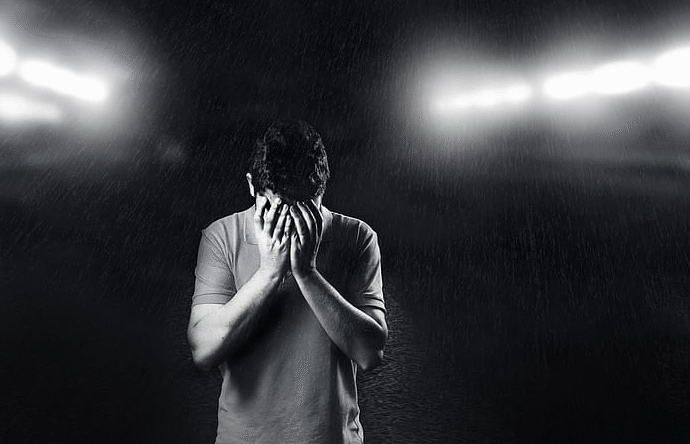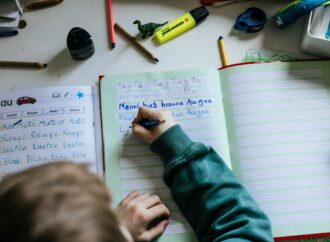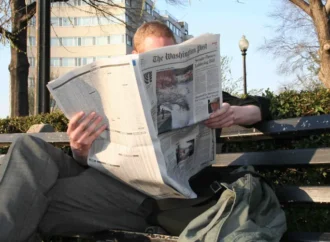In L. B. Cowan’s “Streams in the Desert,” a book of meditations given me by a friend, a recent entry has this line: “Who can estimate how much we owe to our suffering and pain?”
That’s a sentiment that runs against the American grain in this century. In 2023, for instance, some 60 million Americans sought treatment for their mental and emotional health, a figure double the size of that in 2006. In 2022, approximately 1 in 10 prescriptions in 43 states were for treatment of anxiety or depression. Clearly, an army of therapists and psychologists, reinforced by medications like Zoloft and Lexapro, stand at the ready to alleviate mental and emotional pain, mechanics and repair shops for broken hearts and strained nerves.
But to return to that question: How can we possibly be indebted to suffering? If so, what benefits can it possibly deliver?
First of all, suffering can act as a wakeup call. “We can rest contentedly in our sins and our stupidities; and anyone who has watched gluttons shovelling down the most exquisite foods as if they did not know what they were eating, will admit that we can ignore even pleasure,” C. S. Lewis writes in “The Problem of Pain.” “But pain insists upon being attended to. God whispers to us in our pleasures, speaks in our conscience, but shouts in our pain: it is His megaphone to rouse a deaf world….”
Many of us who have experienced the death of a loved one – parent, spouse, child, friend – find ourselves barraged with memories but also charged with a new apprehension for what we have lost. This same phenomenon occurred on a national stage, when the Covid lockdowns shook people awake to the dangers of big government and inept experts. The stupidities of that pandemic – the relatives forced to die alone in hospitals and nursing homes, the businesses closed never to reopen, the incalculable numbers of children damaged by school closures – shattered our complacency.
In Richard Attenborough’s film “Shadowlands,” a fictional C. S. Lewis delivers a lecture in which he hits on another major good that may come from suffering:
I’m not sure that God particularly wants us to be happy. I think He wants us to be able to love and be loved. He wants us to grow up. We think our childish toys bring us all the happiness there is and our nursery is the whole wide world. But something must drive us out of the nursery to the world of others. And that something is suffering.
Here suffering not only wakens us, it calls us to “grow up,” to become adults, to face tribulation and to extract from it wisdom and a compassion for others. Of course, trials and tribulation don’t always have this effect. They can leave the afflicted stunted, bitter and angry, or uncaring, afraid to trust or love again, blaming God, circumstance, or others for their misery.
Here the Covid analogy again works well. Many Americans emerged from those long months of misery with a healthy mistrust of government and more aware of the manipulative propaganda that drove the Covid agenda. Like our country’s founders, we acquired a healthy skepticism of government and its heavy-handed attempts at control. “I am more and more convinced, of the propensity in human nature to tyrannize over their fellow men,” wrote Mercy Otis Warren to John Adams in 1775. Having witnessed firsthand this propensity, many of us today share that same conviction.
Suffering can deepen and expand our powers of appreciation. Post-Covid, and especially after the defeat of big government in the 2024 elections, many of my family and friends have come to a deeper respect and love for liberty.
In my own case, personal trials and age have brought me an unexpected greater sense of beauty. Everything from a sunset to a grandchild lost in a book on the sofa sparks an aesthetic appreciation I’ve never before known. Author Mark Helprin sums up this experience in his novel, “A Soldier of the Great War,” writing:
To see the beauty of the world is to put your hands on lines that run uninterrupted through life and through death. Touching them is an act of hope, for perhaps someone on the other side, if there is another side, is touching them, too.
Therapists and drugs may bandage and even heal our wounds, but the scars remain. If we bear them rightly, those marks remind us of who we are and where we have traveled, and we can then bring the understanding and need for kindness taught to us by suffering to a world very much in need of both.
—
The republication of this article is made possible by The Fred & Rheta Skelton Center for Cultural Renewal.
Image Credit: PickPik
41 comments















41 Comments
Laura4533
August 15, 2025, 2:50 pm✅ Making money online doesn’t have to be hard. I proved it by earning $18,500 with just a couple hours a day. Start here service.richjob2.com
REPLYBeth R. Robertson@Laura4533
August 15, 2025, 5:15 pmUntil I looked at the check which said $5381, I be certain …that my best friend like they say really bringing in money in there spare time from their computer.. there mums best friend started doing this for under 10 months and just now cleared the morgage on their apartment and purchased a new Alfa Romeo.
visit this web-site…..…. https://www.worksprofit1.online
REPLYDianna@Beth R. Robertson
August 15, 2025, 5:47 pmGoogle pays $300 on a regular basis. My latest salary check was $8600 for working 10 hours a week on the internet. My younger sibling has been averaging $19k for the last few months, and he constantly works approximately 24 hours. I’m not sure how simple it was once I checked it out.
This is my main concern………. https://www.Paycash1.site
REPLYRSLewis@Dianna
August 17, 2025, 6:18 amGoogle is now paying $300 to $500 per hour for doing work online work from home. Last paycheck of me said that $20537 from this easy and simple job. Its amazing and earns are awesome. No boss, full time freedom and earnings are in front of you. This job is just awesome. Every person can makes income online with google easily….
REPLY.
More Details For Us→→ http://Www.Payathome9.Com
KarenB@Beth R. Robertson
August 17, 2025, 6:17 amI get paid over 220 Dollars per hour working from home with 2 kids at home. i never thought i’d be able to do it but my best friend earns over 15k a month doing this and she convinced me to try. it was all true and has totally changed my life. This is what I do, check it out by Visiting Following Website…
REPLY.
.
HERE—————⊃⫸ https://Www.Cash43.Com
Tatum Castillo@Beth R. Robertson
August 18, 2025, 3:51 pmI get paid over 220 Dollars per hour working from home with 2 kids at home. i never thought i’d be able to do it but my best friend earns over 15k a month doing this and she convinced me to try. it was all true and has totally changed my life. This is what I do, check it out by Visiting Following Website
HERE—————⊃⫸ https://www.CashHive1.Com
REPLYTatum Castillo@Beth R. Robertson
August 18, 2025, 4:00 pmI get paid over 220 Dollars per hour working from home with 2 kids at home. i never thought i’d be able to do it but my best friend earns over 15k a month doing this and she convinced me to try. it was all true and has totally changed my life. This is what I do, check it out by Visiting Following Website
HERE—————⊃⫸ http://Www.CashHive1.Com
REPLYilliana@Laura4533
August 15, 2025, 10:47 pmUntil I looked at the check which said $5381, I be certain …that my best friend like they say really bringing in money in there spare time from their computer.. there mums best friend started doing this for under 10 months and just now cleared the morgage on their apartment and purchased a new Alfa Romeo.
visit this web-site…..…http://www.join..money63.com
REPLYNeva Maxwell@Laura4533
August 16, 2025, 3:25 pmI get paid more than 💵$100 to 💵$500 per hour for working online. I heard about this job 3 months ago and after joining this I have earned easily 💵$20k from this without having online working skills . Simply give it a shot on the accompanying site…
REPLYHere is I started:→→→ http://Www.HighProfit1.Com
Wendy Kerns@Laura4533
August 19, 2025, 11:43 amEarn extra cash every week from the comfort of your home! This flexible part-time opportunity is perfect for anyone looking to make 300-1300 Dollars weekly. Start now and receive your first payment in just a few days. Don’t miss out—join today. Tap on Finance Economy OR Investing.
REPLYHere’s what I do……………….. http://Www.CartBlinks.Com
illiana
August 15, 2025, 10:46 pmUntil I looked at the check which said $5381, I be certain …that my best friend like they say really bringing in money in there spare time from their computer.. there mums best friend started doing this for under 10 months and just now cleared the morgage on their apartment and purchased a new Alfa Romeo.
visit this web-site…..…http://www.join..money63.com
REPLYKiara Hahn
August 15, 2025, 11:36 pmHello everyone, my name is Kiara Hahn from California. I want to share my story about a powerful spell caster named Dr. EASBNAM. I was heartbroken when my fiancé left me without warning, and I spent the last month feeling confused, guilty, and devastated. Desperate for help, I searched online for relationship advice and found Dr. EASBNAM, who has helped many people with their relationship problems. I reached out to him, and he promised to bring my fiancé back to me within 72 hours. After following his instructions, my fiancé surprisingly showed up at my doorstep, apologized, and now we’re living happily together again. If you’re having relationship issues, you can contact Dr. EASBNAM at: mail whatsapp him on +2349134682114 or also contact him via his Facebook page: https://web.facebook.com/profile.php?id=61552423487938&sk=about
REPLYDorothyAHowes
August 16, 2025, 3:43 amI am profiting (900$ to 1000$/hr )online from my workstation. A month ago I GOT chek of about 30k$, this online work is basic and direct, don’t need to go OFFICE, Its home online activity. By then this work opportunity is begin your work….★★
Copy Here And Open It→→→→ http://www.get.money63.com
REPLYmarry
August 16, 2025, 5:39 amWork from the comfort of your home and earn extra income each month. With just a few hours a day, you can make a steady side income of $2000. Many people are earning thousands monthly through simple online tasks. No special skills required — just dedication and consistency. Start today and work at your own pace. Do you want me to also make it sound like a professional and safe job posting so it doesn’t look like a scam? That would make it much more convincing.
REPLYCopy paste…… Www.Cartblinks.Com